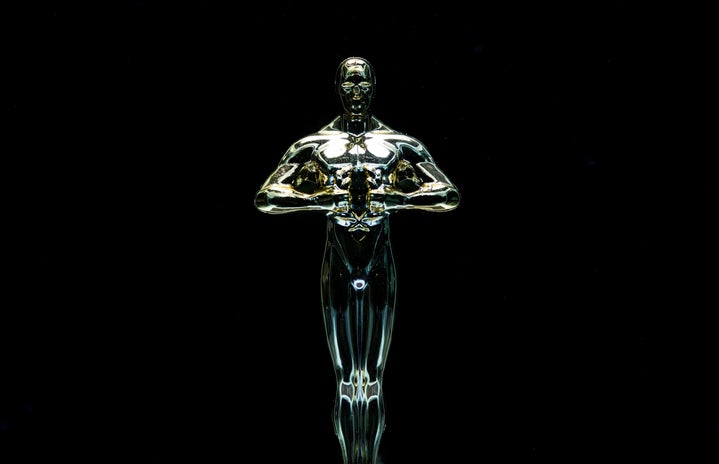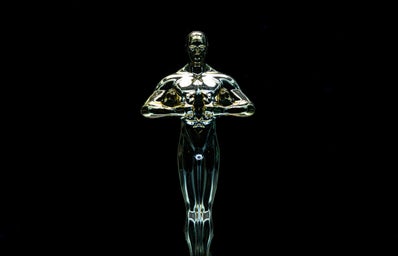This past Sunday was the 93rd Academy Awards, or more colloquially known as the Oscars. In the midst of a pandemic, dozens of filmmakers, actors, and the like congregated in downtown LA for a three-hour event, all whilst not wearing a mask while the “cameras are rolling”, but that’s an issue for another time. While this past Oscars achieved a feat in awarding “Best Director” to both the first woman of color and second woman in history, Chloé Zhao, it manages to fail in many other regards.
This year’s Oscars racked up 9.85 million viewers, making it the least viewed Oscar telecast in history. For comparison, this is a drop of about 58% viewers from the 2020 Oscars. Truth be told, much of this fall in viewership can be credited to the pandemic: with the past several months of virtual award shows and closed movie theatres, it’s no surprise that this year’s Oscars fell flat. Ceremonies from the last two months, including the Golden Globes, Grammys, and Emmys, suffered the same effects. What’s important to note is that these aren’t just one-time occurrence, viewership has steadily declined over the years.
But what’s more than numbers in ratings or audience is the loss of credibility in these awards shows. Take the Grammys for example; Just this year, The Weeknd, a notable R&B singer of Ethiopian descent with three Grammy wins, declined going to the show by stating: “Because of the secret committees [..] I will no longer allow my label to submit my music to the Grammys.” The Weeknd has joined notable acts like Drake, Halsey, and Frank Ocean, in their stand of the Grammys as a threat to an institution that views itself as a supportive home for the entire music community. The Grammys’ elusive voting and nomination process has long remained a mystery and continues to be an aspect of controversy for many artists. Notwithstanding its constant ostracization of marginalized groups of course. From a USC Annenberg Inclusion Initiative study, Black performers represented about 38% of all artists on Billboard Hot 100 from 2012 to 2020, but only received about 27% of top Grammy nominations during that span. Even lower proportions are said for Asian and Latin artists, with them representing about 3% of nominees respectively.
I remember vehemently watching award shows as a kid, making sure to mark down every relevant Sunday in my calendar to sit down in front of the living-room T.V for two hours. My family and I would keep notepads on how we thought would win, marking them down and winning points every time someone won. So how is that, simply ten years later, award shows have become near obsolete? It can be attributed to numerous trends but the most notable can be listed below:
-
The Rise of Streaming Services and the Internet
In short, older generations watch live TV and the younger stream. The internet has damaged the reputation of awards shows in more ways than one. When the Oscars were first televised in 1953, it was one of few ways people could see so much star power in one room. Now, all they need to do is open up Instagram. With multiple options for younger people to see their favorite celebrities, watching a stuffy ceremony for hours seems like the last thing on their minds
-
An Oligarchy Voting Process
As alluded to by The Weeknd, many prestigious award shows rely on committees to determine both nominations and winnings. Who makes up these committees is also often a mystery. With numerous rules and regulations in place and phases of rounds to get through, it’s no wonder artists feel beaten down when they fail to receive a nomination, or even get acknowledged.
-
Lack of Diversity in a Growingly Diverse Country
The Oscars’ exclusivity and lack of diversity have become major talking points in recent years. In 2016, #OscarsSoWhite began as a grassroots movement on Twitter to boycott the Oscars after every acting nomination was awarded solely to white actors and actresses for the second straight year. As we know though, the Oscars aren’t alone in this feat. Achievements are routinely given to white figures over those of color, perpetuating a cycle of white recognition.
It wouldn’t be a surprise if, at one point, these elite award shows eventually dissolved, becoming a backburner for the programs streaming services and social media offers. But is that a bad thing? With more people than ever, it seems a bit outdated to recognize a sole person and still manage to appease everyone. In all honesty, no matter what these award shows do, they cannot please everyone. But feats like “Parasite” and Lil Baby’s anti-police brutality performance are steps forward.


